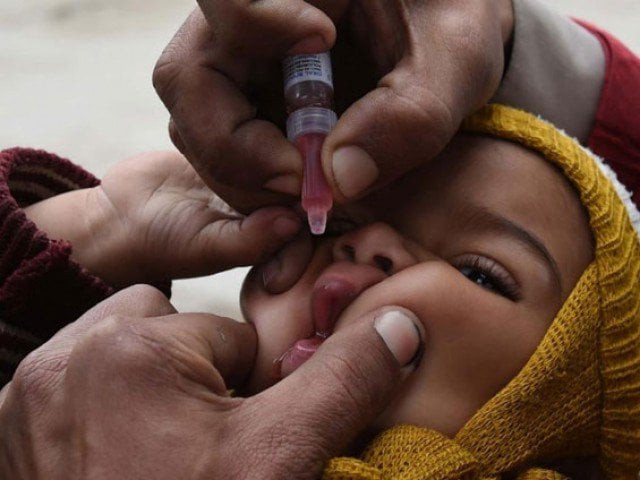Public-private initiative : PIPH’s polio drive under way in four districts, three areas in FATA
Introduced IPV in tribal areas in 2013

Introduced IPV in tribal areas in 2013. PHOTO: AFP
Strategies
PIPH conducted a pilot project in Bajaur Agency to educate people about health and nutrition, and stop the spread of the disease further in March 2013. With the success of that project and assistance from the provincial health department, PIPH held campaigns in high-risk areas of four districts in K-P and three areas in Fata. Children there were not only inoculated against the crippling virus but PIPH carried out door-to-door service, providing maternal and child-care services to people.
“PIPH took its pilot project to another level and launched ‘Mother Child Care Program’ in collaboration with Trust for Vaccine and Immunization (TVI), which was quite successful,” said PIPH official Bilal Ahmad. “PIPH also introduced Inactivated Polio Vaccine (IPV) for the first time in Fata in 2013,” he added.
According to Ahmad, polio campaigns were being held in light with the methods adopted by World Health Organization. “Health officers in DI Khan, Bannu, Tank, Lakki Marwat, FR Lakki Marwat, FR Tank and South Waziristan Agency are assisting us with campaigns and health camps,” he said.
Methodology for future plans
PIPH Project Director Dr Saeed said “Initially, we focused our efforts in high-risk districts in the south of the province and their adjoining frontier regions, but now, the first round of health camps and campaigns in selected union councils is under way.”
Saeed stated 15 households from 30 clusters in relevant union councils were randomly selected and pre-vaccination surveys were conducted in each. “A post-vaccination survey will be carried out to evaluate the impact of interventions,” he added.
The project director also said health camps focused on educating people, particularly women, enabling them to take good care of their children and themselves. “People are now aware of the importance of immunisation, which is a big step,” he said.
Besides IPV, children were also being immunised with BCG, pentavalent vaccine, PCV, OPV, measles and tetanus vaccines.
Published in The Express Tribune, October 21st, 2015.













COMMENTS
Comments are moderated and generally will be posted if they are on-topic and not abusive.
For more information, please see our Comments FAQ